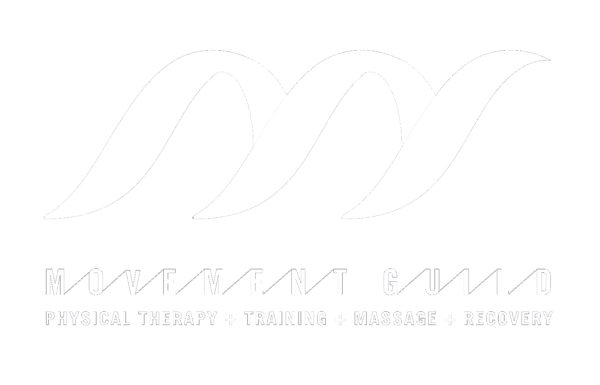You’ve made it through pregnancy, labor, delivery—and now, you’re adjusting to the sleep-deprived, beautiful chaos of new motherhood. But somewhere between diaper changes and cluster feeding, your provider schedules a 6-week postpartum check-up. So what exactly happens at this appointment?
If you’re not sure what to expect—or why it even matters—you’re not alone. Many new moms assume it’s just a quick clearance to “go back to normal,” but the truth is, this visit is a vital part of your physical and mental recovery. And at The Movement Guild in Chicago, we’re big on making sure your postpartum care is realistic, supportive, and actually helpful.
Understanding the 6-Week Postpartum Check-Up: It’s Not Just a Box to Check
After childbirth, your body goes through massive physiological changes. The 6-week mark is traditionally when OBs and midwives assess how you’re recovering from birth—but this is also where things can fall short.
The typical medical check-up looks at:
-
Uterine healing
-
Cervical closure
-
Perineal stitches (if any)
-
Bleeding status (lochia)
-
Breastfeeding challenges
-
Mood, sleep, and emotional health
-
Birth control and sexual activity discussion
But here’s the thing: just because your uterus is back to normal size doesn’t mean your core, pelvic floor, or musculoskeletal system are fully recovered. That’s why functional postpartum care—like what we offer at The Movement Guild—goes beyond the surface.
A Look at Your Anatomy: What’s Being Evaluated
Whether you had a vaginal birth or C-section, your provider wants to assess how your body is healing. That includes:
Pelvic Floor Health
Your pelvic floor is a group of muscles that support your uterus, bladder, and rectum. During pregnancy and delivery, it gets stretched, stressed, and sometimes injured. Your provider might assess for:
-
Pelvic floor strength
-
Prolapse symptoms (heaviness, pressure)
-
Urinary incontinence
-
Pain with intercourse (dyspareunia)
If your OB doesn’t address these things, you should absolutely see a pelvic floor physical therapist—we handle this daily at The Movement Guild.
Abdominal Wall & Core
Diastasis recti (abdominal separation) is common postpartum. At six weeks, providers should check for:
-
Separation of the abdominal muscles
-
Core engagement ability
-
Signs of poor pressure management (like doming or coning when lifting)
This isn’t just a vanity issue—it’s about protecting your spine, posture, and pelvic health long term.
Emotional & Mental Health: Let’s Talk Honestly
The 6-week visit isn’t just physical. Your provider should screen for postpartum depression or anxiety. But those quick questionnaires? They often don’t catch the full picture.
If you’re feeling:
-
Disconnected
-
Overwhelmed beyond the “normal” tired
-
Anxious all the time
-
Sad, irritable, or not like yourself
You are not alone, and you are not failing. Getting support early can make all the difference. At The Movement Guild, we refer to trusted mental health professionals in Chicago who specialize in postpartum care if needed.
What the Appointment Usually Includes
Every OB/midwife runs their appointments a little differently, but here’s what usually goes down at your 6-week postpartum check-up:
Physical Exam
-
Pelvic exam (internal and external)
-
C-section incision check, if applicable
-
Breast exam (especially if breastfeeding)
-
Blood pressure and weight
-
Assessment of uterus and vaginal tissue
Emotional Screening
-
Questions around mood, bonding, and support
-
Possible mental health questionnaire (e.g., EPDS)
Lifestyle Clearance
This is where they’ll say whether you’re “cleared” to:
-
Resume sex
-
Exercise again
-
Return to work or physical activity
But here’s a heads up: being medically cleared isn’t the same as being physically ready.
What Should Happen: The Movement Guild’s Take
At The Movement Guild, we believe postpartum care should include:
-
A movement assessment, including posture, breathing, core, and pelvic floor connection
-
A customized plan for getting back to exercise safely
-
Manual therapy and guided rehab for C-section scars, diastasis, or pelvic pain
-
An open dialogue about your experience—because healing isn’t just physical
If your 6-week visit didn’t give you clarity or confidence, we’re here to fill the gap.
Signs You Should Seek Additional Help After 6 Weeks
A clean bill of health doesn’t mean your body is back to baseline. If you’re experiencing any of the following, it’s time to get evaluated:
-
Leaking urine with sneezing, running, or lifting
-
Pain with sex
-
Ongoing pelvic heaviness or pressure
-
Low back pain that won’t quit
-
Abdominal doming or bulging during movement
-
Feeling “disconnected” from your core or breath
These are common, but not normal—and absolutely treatable with the right support.
How The Movement Guild Supports Your Postpartum Recovery
We’re not a “snap back” kind of place. At The Movement Guild in Chicago, we focus on evidence-based, whole-body rehab designed for real postpartum life. Our team includes:
-
Pelvic floor physical therapists
-
Movement specialists and strength coaches
-
Manual therapists who can address C-section recovery, scarring, and tension patterns
Our goal? Help you feel strong, capable, and confident in your body again—without rushing the process or ignoring the mental side of recovery.
Final Thoughts: The 6-Week Visit Is Just the Beginning
Don’t treat the 6-week postpartum check-up as a finish line. It’s a starting point. Healing from birth isn’t a single moment—it’s a progression. And you deserve a plan that honors that.
Whether your delivery was smooth, complicated, vaginal, or surgical—your body and mind deserve real care, beyond the basics.
Ready to Start Healing for Real? Book with The Movement Guild in Chicago
If your 6-week check-up left you with more questions than answers—or if you’re just ready to feel strong and supported again—we’re here to help.
At The Movement Guild, we bridge the gap between medical clearance and full-body recovery with personalized postpartum therapy that meets you where you are. Book your postpartum evaluation today at our Chicago clinic.

